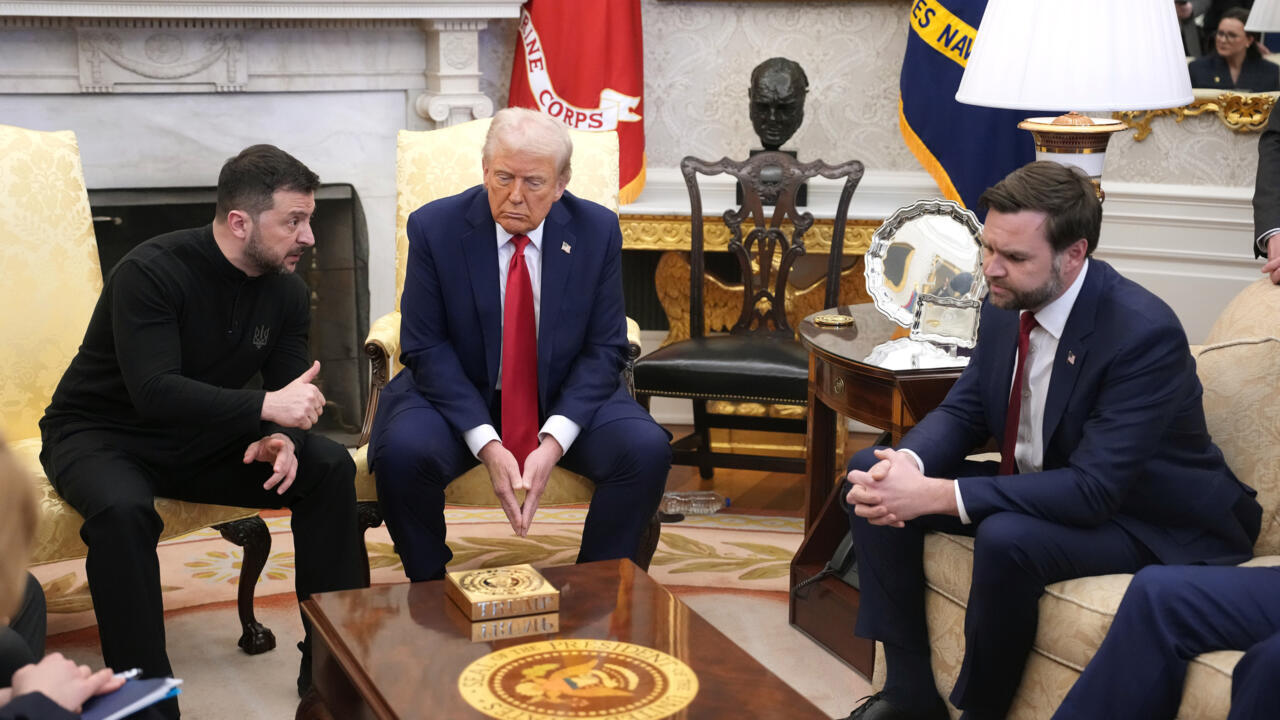The potential for negotiations between Ukrainian President Volodymyr Zelensky and former U.S. President Donald Trump creates a complex and multifaceted discussion. As both figures occupy high-stakes roles on the global stage, their interactions could significantly impact international relations, notably concerning Ukraine's ongoing conflict with Russia and the broader geopolitical landscape.

First and foremost, it's essential to understand the current context of Ukraine's situation. Since 2014, Ukraine has faced aggression from Russia, culminating in a full-scale invasion in 2022. Zelensky has become a symbol of resistance and democratic ideals, rallying global support for Ukraine. His administration continues to navigate challenging waters, seeking military, humanitarian, and economic assistance from allies, especially the United States.
Trump's relationship with Ukraine has been contentious and complicated. During his presidency, Trump was impeached for allegedly soliciting interference from Ukraine in the 2020 election, a move that strained U.S.-Ukraine relations. After leaving office, Trump has expressed his views on foreign policy, suggesting that military aid to Ukraine should be reconsidered and emphasizing a more isolationist approach.
Given this background, the question arises: could Zelensky and Trump find common ground to reach an agreement?
Factors Influencing Potential Agreement
- Political Landscape: The political landscape in the U.S. is critical. As the 2024 presidential election approaches, Trump's stance on Ukraine could either tighten or soften based on his support base and the political narrative surrounding the conflict. If elected, Trump's policies concerning Ukraine will likely impact any dialogue with Zelensky.
- U.S. Support for Ukraine: Bipartisan support for Ukraine has historically characterized U.S. foreign policy; however, if Trump advocates for scaling back support, Zelensky may need to negotiate in a way that aligns with conservative interests. This could involve emphasizing the importance of U.S. interests in supporting Ukraine, such as countering Russian influence and promoting stability in Europe.
- Zelensky's Position: Zelensky has shown resilience in maintaining Ukraine's sovereignty and democratic principles. His negotiation strategy with Trump would likely involve presenting tangible outcomes from continued support, such as showcasing how U.S. aid has effectively countered Russian advances or improved humanitarian conditions in Ukraine.
- Public Sentiment: The expectations of the Ukrainian public and the American electorate will also play a significant role. Any perceived weakness in negotiations, or failure to protect Ukraine's sovereignty, could lead to backlash against both leaders. Zelensky’s approach would need to resonate with his constituents, while Trump must cater to his supporters who may hold differing views on foreign aid and international alliances.
- Global Dynamics: The international landscape is increasingly interconnected. If China and Russia perceive a weakening of the Western alliance due to U.S. political shifts, Zelensky may use the opportunity to emphasize the importance of sustaining U.S. resolve against aggression. This could create a framework for negotiations that appeal to Trump’s “America First” policy, arguing that a stable Europe is beneficial for American interests.
- Economic Considerations: The state of the U.S. economy will also impact negotiations. If economic challenges arise, there may be increased pressure from constituents on politicians like Trump to focus on domestic issues rather than international commitments. Zelensky would need to demonstrate how continued U.S. support for Ukraine could also provide strategic benefits to the U.S. economy, including arms manufacturing and technological
partnerships.
Potential Outcomes of a Negotiation
- Increased Conditional Support: One possible outcome of negotiations could be an arrangement where the U.S. commits to ongoing support, but with strings attached, such as reforms within Ukraine. Zelensky might be compelled to demonstrate enhanced governance and anti-corruption measures to assure Trump and his supporters.
- Framework for Diplomacy: Zelensky and Trump might agree on a diplomatic approach toward resolving the conflict, potentially involving negotiations regarding autonomy for certain regions or a ceasefire depending on evolving circumstances. This would require careful positioning to ensure that peace efforts do not compromise Ukraine's territorial integrity.
- Continued Military Aid with Reassurance: Another scenario is that Trump would agree to continue military support, but with reassurances regarding spending and accountability. Zelensky could leverage this to ensure that military assistance remains robust, articulating clear strategies for accountability that align with Trump's focus on effective use of taxpayer dollars.
- Trade Agreements: Zelensky might explore economic partnerships with Trump, focusing on trade agreements that can bolster Ukraine's economy and provide a platform for closer U.S.-Ukraine ties. This could present an appealing alternative to purely military discussions, framing Ukraine as a valuable trade partner.
- Strategic Partnerships with Other Countries: If negotiations with Trump do not yield favorable results, Zelensky may pivot towards strengthening relationships with other European and global powers to secure Ukraine’s position. This could also involve emphasizing the need for a collaborative approach to meet Ukraine's needs, regardless of changing U.S. administrations.
In conclusion, whether Zelensky can reach an agreement with Trump is contingent upon numerous factors, including political dynamics, economic conditions, and the evolving landscape of international relations. While Trump may present obstacles due to his controversial past with Ukraine, there remain opportunities for dialogue if both leaders can identify mutual interests. Ultimately, successful negotiations would need to strike a balance between supporting Ukraine's needs and addressing the concerns of U.S. voters and stakeholders, signaling the intricate dance of diplomacy that characterizes modern international relations. As events unfold, the world will be watching closely to see if a path forward can be charted between these two influential figures.












